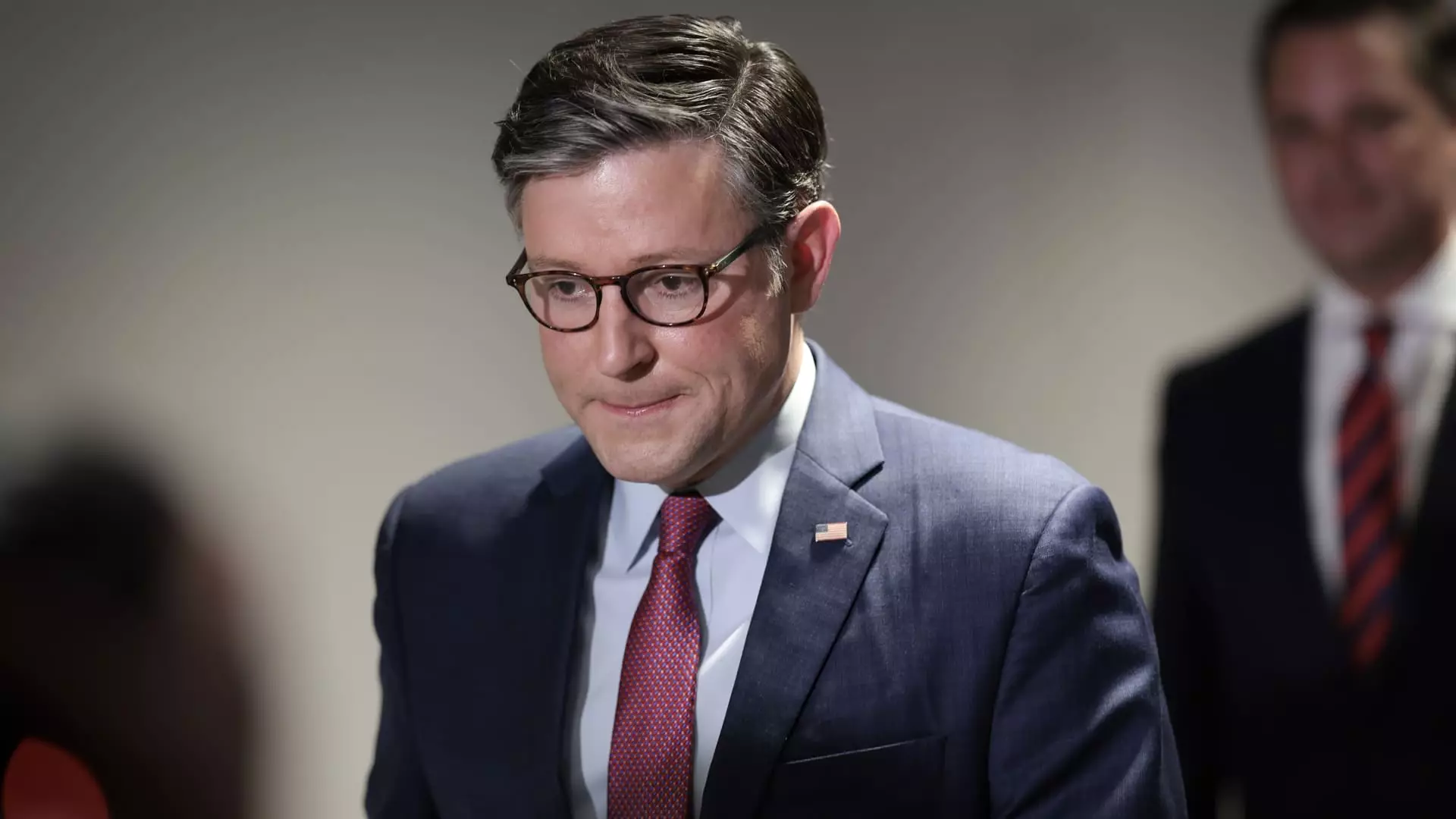The political climate within the United States House of Representatives has become increasingly contentious, especially regarding government funding. This week, Republican Speaker Mike Johnson revealed a revised plan to prevent a government shutdown scheduled for December 20. This proposal has drawn attention due to its significant deviations from previous plans, highlighting the challenges of governance amid the turbulent interplay of party politics.
On a recent Sunday, Speaker Johnson outlined a “bare-bones” funding proposal that reflects a significant departure from former President Donald Trump’s demands. The new bill, instead of extending funding through March 2025 as originally suggested, will provisionally fund government activities only for three months. This move is indicative of the Speaker’s need to navigate a fractious Republican caucus and an immediate risk of government closure. Notably, the omission of the SAVE Act—a controversial election security measure requiring proof of citizenship for voter registration—signals Johnson’s attempt to appeal to a broader base, even at the cost of Trump’s approval.
In a letter sent to fellow Republicans, Johnson emphasized that this plan includes only necessary extensions to avert a shutdown, showcasing pragmatism in an uncertain political environment. He warned his colleagues of the dire consequences of a government shutdown, especially with the November elections approaching, wherein control of both Congress and the White House hangs in the balance. History and polling data inform his stance; the Speaker suggests letting the government grind to a halt less than 40 days before critical elections would constitute “political malpractice.”
With a deadline fast approaching, Congress has only eight days to reach an agreement. Johnson’s timeline suggests that the funding proposal could reach the House by Wednesday. This urgency reflects not only the immediate threat of a shutdown but also the spiraling tensions within Republicans, which have become exacerbated by their slim majority in the House. Johnson’s party can afford to lose only four votes, creating a precarious situation where any dissent could unravel the entire budget strategy.
The stakes are high, and Johnson is aware that failing to unify his party now could mirror the challenges faced by his predecessor, Kevin McCarthy, who was ousted after making deals with Democrats to stabilize the government. This context adds layers of complexity to Johnson’s leadership role, as he must carefully manage party factions while keeping the legislative process moving forward.
Democratic Response: Coalitions and Compromises
As Johnson navigates these treacherous waters, Democrats appear cautiously optimistic about the new bill. President Biden and Senate Majority Leader Chuck Schumer have pushed for shorter-term proposals that would allow for a fresh start come January, thereby avoiding longer-term commitments that might constrain the hand of a potentially new governing body post-elections. Schumer’s endorsement of Johnson’s latest proposal underscores an unusual moment of bipartisanship, suggesting a window for cooperation previously thought closed.
Schumer’s comments celebrating the proposal as a necessary shift signify a willingness among some Democrats to collaborate in the interest of governmental stability. He pointedly observed that the failure of the earlier MAGA-aligned proposal has opened the doors to a more collaborative approach, further indicating that the vast ideological divide may not be as impermeable as it once seemed.
As the November elections loom ever closer, the implications of current funding debates extend beyond mere budgetary concerns. The political environment is suffused with strategic maneuvering as both parties prepare for major shifts. The possible ramifications of either failing to secure government funding or engaging in a protracted impasse would not only impact governance but could also influence electoral outcomes. Voters are likely to respond to perceived mismanagement or ineffectiveness among their representatives, which adds pressure on both sides to deliver results.
In the end, Johnson’s recent concessions may not only reflect a tactical withdrawal from strict party lines but also highlight a recognition of the evolving reality within Congress. As he tries to carve a path forward for the House during difficult times, the viability of his speakership may hinge on his ability to negotiate effectively with both his party and opposing factions. The next few weeks will be telling as the clock ticks down on funding negotiations and the stakes for both parties grow ever higher.


Leave a Reply